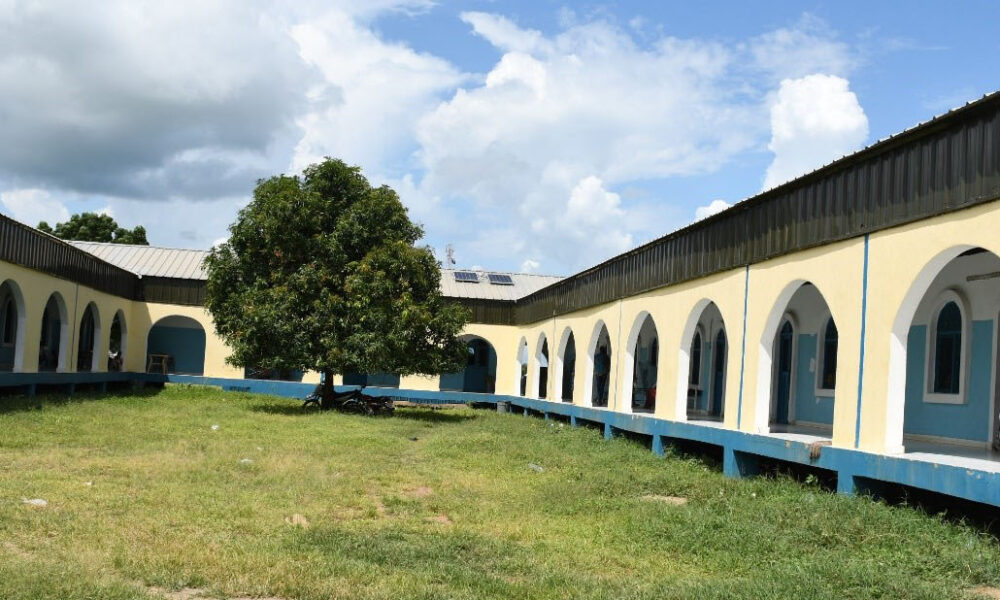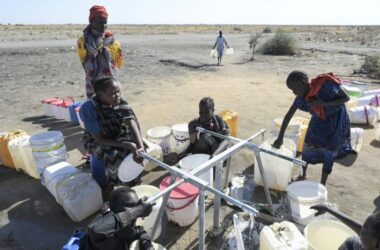By Philip Buda Ladu
Health authorities in Abiemnom County of Ruweng Administrative Area (RAA) are appealing to health partners to support the hospital with essential drug supplies that have been out of stock for the past few months.
In the past, the international health charity Care International was the health partner supporting the hospital that serves tens of thousands of civilians.
However, since its withdrawal, medics at the Abiemnom hospital are in desperate need of assistance.
Simon Mayol, the Abiemnom County Health Director, described a dire healthcare situation in the county.
“Abiemnom now is facing the challenge of drugs. We received the last batch in June, and it has now finished; we don’t have drugs now; no supply,” Simon decried.
He pointed out that they only received 14 cartons of medical supplies last week, which was barely enough to meet the demand during the rainy season when malaria cases peak.
Simon emphasized that the hospital is facing a significant mosquito problem and is not receiving adequate support from organizations or the government.
Abiemnom County has five Primary Health Care Centers (PHCCs) that support the operations of the county’s only referral hospital, according to authorities.
The county’s medical director stressed that they have enough medical workers, but their main challenge at the moment is the lack of sufficient medical supplies.
“Before we had Care International, which used to support us with medicines, but it has withdrawn,” Simon recalled.
He stated that in a critical situation, they make referrals to Wau Teaching Hospital which takes two days to reach a patient, adding that the county only has one ambulance since the other one broke down.
According to Simon, health organization, Cordaid, was supposed to take over from Care International, but since then it has not reached the county hospital, which now operates under the government with little to no support.
Regina Nyan Nyok Chol, a midwife working at Abiemnom Hospital, recently upgraded from the level of a Primary Healthcare Center (PHCC), added her voice to the dire health situation in the facility and the need for immediate intervention.
She said they usually ran short of drugs like quinine at the hospital, which is an important drug most of the time for the treatment of malaria for pregnant mothers at the antenatal care unit.
“We used to run short of malaria drugs and especially drips,” she stressed.
Regina said most of the time they send people to buy drugs, which is hard for the community members to afford. She urged other organizations to help them with drugs and mosquito nets.
The midwife recounted that when Care International left Abiemnom Hospital, UNICEF sometimes used to support them with mosquito nets, which was helping, especially motivating pregnant mothers to follow antenatal care visits.
“So if there is support coming, help with some mosquito nets, and we also have shortages of drugs that we use in the maternity ward, like Oxytocin and Omeprazole, helping the mothers, especially during delivery.”
According to Regina, they normally receive maximally five to six ill mothers through OPD, and sometimes 7 to 10 expectant mothers come for Antenatal Care (ANC) daily.
Meanwhile, for the labor cases, most of which come at night, the hospital used to handle two to three deliveries daily. But complicated cases at labour like pregnant mothers with anaemia are referred to Wau Teaching Hospital, where one case was referred a month ago.
Last week, at least five patients with anaemia, including pregnant women and children, were referred to Wau Teaching Hospital for proper attention.
The most registered sicknesses at Abiemnom Hospital are malaria and typhoid, and midwives say they also lack antenatal care unit medicines and hand gloves for handling expectant mothers.




